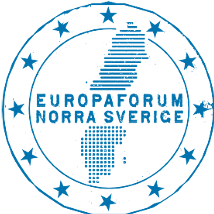
EFNS (Europaforum Northern Sweden) supports the European Commission’s initiative to develop a European strategy for water resilience but emphasises that the EU’s work on water resilience must be very flexible and take great account of different conditions in the Union’s countries and regions by not imposing mandatory requirements for water recycling and promoting competitiveness for water-intensive industries.
The European Commission’s strategy needs to be flexible
Northern Sweden has good water resources, low population density and agriculture on less than one per cent of the land surface and poses no threat to water availability, and has very limited impact on water quality. The major challenge is the ageing drinking water and wastewater infrastructure, where long distances and low population make investment and cost allocation difficult.
Water-intensive industries, such as the steel and process industries, are crucial for the region, Sweden and the EU’s supply of steel and cellulose products, among others. At the same time, the EU’s work on water resilience must ensure water supply without jeopardising the competitiveness of these established industries or new activities such as greenhouse production. It is also important to enable future innovative solutions that may require significant water resources.
– Introducing general requirements for water recycling in northern Sweden would mean a great waste of resources, as the need is limited. EFNS therefore opposes mandatory regulations in regions where water recycling is not necessary, says Erik Lövgren (S), rapporteur Europaforum Northern Sweden.
Europaforum Northern Sweden believes that the EU’s water resilience strategy must be flexible and adaptable to reflect the different conditions in the Member States while ensuring industrial competitiveness in northern Sweden. The region has a central role in the EU’s green transition and strategic autonomy, and it is therefore crucial that the strategy takes into account its unique opportunities and challenges.
Through a flexible approach, northern Sweden’s water-intensive industries can remain competitive and continue to contribute to both regional and European development.
Find the position here: Europaforum Northern Sweden’s views on the upcoming European strategy for water resilience

